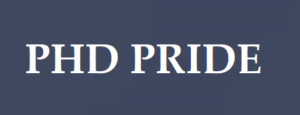Introduction
Imagine you’re about to embark on a journey to discover new knowledge in your field. The first step? Conducting a comprehensive literature review. This crucial task sets the foundation for your research, helping you understand the existing body of work, identify gaps, and position your study within the broader academic conversation. Let’s delve into the strategies and steps to conduct an effective literature review for your PhD research.
1. Understanding the Purpose of a Literature Review

Before diving into the how, it’s essential to understand the why. A literature review serves several critical purposes:
- Contextualizing Your Research: It provides a backdrop against which your research stands, highlighting its relevance.
- Identifying Gaps: It reveals areas that have not been explored or need further investigation.
- Avoiding Duplication: It ensures your research is original and not just repeating past studies.
- Building a Theoretical Framework: It helps you construct a robust theoretical base for your study.
2. Defining Your Research Question
A focused research question guides your literature review, keeping it aligned with your study’s objectives. Your research question should be:
- Specific: Narrow enough to be manageable.
- Clear: Easy to understand and unambiguous.
- Researchable: Feasible for investigation given the resources and time available.
3. Searching for Relevant Literature
Efficient literature search strategies are vital for an exhaustive review:
- Databases and Search Engines: Utilize academic databases like PubMed, JSTOR, Google Scholar, and your institution’s library resources.
- Keywords and Phrases: Use relevant keywords, synonyms, and Boolean operators to refine your search.
- Snowballing: Review the references of key papers to find additional relevant studies.
4. Organizing Your Findings
Organization is key to managing large volumes of information:
- Reference Management Software: Tools like EndNote, Zotero, and Mendeley help organize and cite sources.
- Thematic Categorization: Group studies by themes, methodologies, or findings.
- Annotated Bibliography: Write brief summaries and critical evaluations of each source to keep track of their relevance and contributions.
5. Analyzing and Synthesizing Information

A literature review is not just a summary; it’s an analysis and synthesis of existing knowledge:
- Critical Evaluation: Assess the quality, reliability, and validity of each study.
- Comparative Analysis: Compare and contrast different studies to highlight agreements, contradictions, and trends.
- Thematic Synthesis: Integrate findings from various studies to draw broader conclusions.
6. Writing the Literature Review
Writing a coherent and compelling literature review involves several steps:
- Introduction: Outline the scope of your review and its relevance to your research question.
- Body: Organize the review thematically or methodologically, presenting and critically analyzing the literature.
- Conclusion: Summarize key findings, identify gaps, and highlight how your research will address these gaps.
7. Staying Current
Research is an ever-evolving field, and staying current is crucial:
- Regular Updates: Continuously update your literature review with recent studies and findings.
- Alerts and Subscriptions: Set up alerts on academic databases to receive notifications of new publications in your area.
8. Ethical Considerations
Maintaining ethical standards is essential:
- Proper Attribution: Cite all sources accurately to avoid plagiarism.
- Transparency: Clearly explain your literature search and selection process.
Conclusion: Building a Strong Foundation
Conducting an effective literature review is a cornerstone of successful PhD research. It requires meticulous planning, critical thinking, and continuous updating. By following these strategies, you can build a robust foundation for your research, positioning your study within the broader academic landscape and contributing meaningful insights to your field. Embrace this journey with diligence and curiosity, and let your literature review guide your path to academic excellence.
References:
Books:
- “The Literature Review” by Diana Ridley
- “Conducting Research Literature Reviews” by Arlene Fink
- “Systematic Reviews in the Social Sciences” by Mark Petticrew and Helen Roberts
- “Literature Reviews in Social Work” by Christine H. Dacey and Mary Ellen Verbraska
- “Doing a Literature Review” by Chris Hart
Journals:
- Journal of Educational Psychology
- Research in Higher Education
- The Journal of Higher Education
- Educational Researcher
- Review of Educational Research
Online Resources:
- Purdue Online Writing Lab: Literature Reviews
- University of Phoenix’s Literature Review Guide
- Harvard University’s Literature Review Resources
- Stanford University’s Literature Review Guidelines
- American Psychological Association (APA) Literature Review Guidelines
Websites:
- ProQuest Dissertations & Theses Global
- Google Scholar
- JSTOR
- PubMed
- Web of Science

